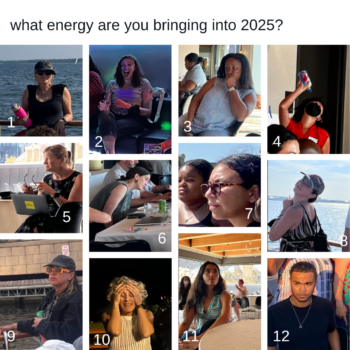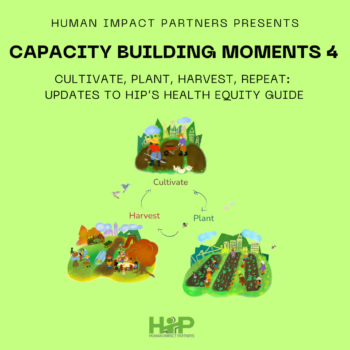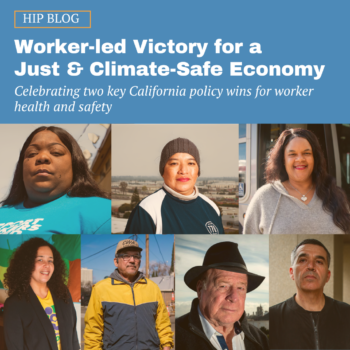| By Afomeia Tesfai |
Many social movements in the United States have used community organizers to mobilize and strengthen collective power to liberate communities from systems of oppression. Today, the concept of “organizing” is becoming mainstream as we watch Black communities unite to address police brutality and reform the criminal justice system.
Some people relegate “organizing” as an advocacy strategy to push a single-issue, minimizing the historical impact. I consider organizing a strategic process that brings together community to influence institutions, policies, and government through relationship building and education.
The purpose of public health is to protect the health of individuals and communities from harmful conditions in the workplace and the environment where they learn and live. With public health’s unique focus on improving the health of populations, the field has set workplace safety standards, enacted policies to ban smoking indoors, and created nutrition programs in schools. These are all institutional, policy, and government changes; the same kind of changes influenced through community organizing. By organizing and framing issues as a public health matter, our profession has been able to elevate the health of communities.
Historically, communities have relied on their own power to organize against injustices they were experiencing and/or witnessing. The long history of organizing is rooted in changing structural systems to grant civil liberties to those who have been marginalized. Ella Baker, a community organizer during the Civil Rights Movement, was a leader in collective leadership development. Rejecting the need for a charismatic leader and formal hierarchy, Baker preached, “In order for us as poor and oppressed people to become part of a society that is meaningful, the system under which we now exist has to be radically changed…It means facing a system that does not lend its self to your needs and devising means by which you change that system.”
My own experience with organizing started while I was a public health student in Seattle, Washington. I worked closely with Ending the Prison Industrial Complex (EPIC), a coalition organizing to prevent the building of a new youth jail. Organizing around mass incarceration helped me to understand the intersectionality between systems of oppression and health outcomes.
Over the past two years, I’ve been on the ground working with EPIC to bring public health analysis to the No New Youth Jail campaign. EPIC uses ten anti-racist principles from The People’s Institute for Survival and Beyond to transform communities by providing political education to understand their power and hold elected officials accountable. During my time with EPIC, I along with other public health students expressed our strong opposition and challenged city council members to consider their support of the jail as being in direct contradiction with the goals of protecting our youth. We highlighted the health consequences of incarceration; beyond individual health, we talked about community and economic effects like the high costs associated with incarcerating youth, the justice system’s perpetuation of racism and discrimination against Black and brown youth, and incarceration’s inability to solve the underlying problems of communities.
Because of our strong organizing, we garnered support from one city council member, Kshama Sawant who voted “no” to investing over $200 million dollars in building a detention center. The persistent pressure from organizing groups and community did not end even in the face of adversity. Modeling alternatives and changing the narrative of incarceration, a resolution to end youth incarceration was written with the support of EPIC and Youth Undoing Institutional Racism. On September 17, 2015, the City Council’s Public Safety committee voted to end youth incarceration in Seattle and now the measure will go to the city council for approval.
The fight to end youth incarceration is far from over. Patrick McCarthy, CEO of Annie E. Casey Foundation in June 2015, urged states to close down youth prisons. “We need to admit that what we’re doing doesn’t work, and is making the problem worse while costing billions of dollars and ruining thousands of lives,” said McCarthy.
On the ground organizing is pushing elected officials to consider the unfair treatment of Black and brown people from early childhood to adulthood in school, employment, housing, criminal justice system, and other sectors. Public health has a unique opportunity to use anti-racist community organizing principles to frame issues to radically transform the living conditions and opportunities for communities.




